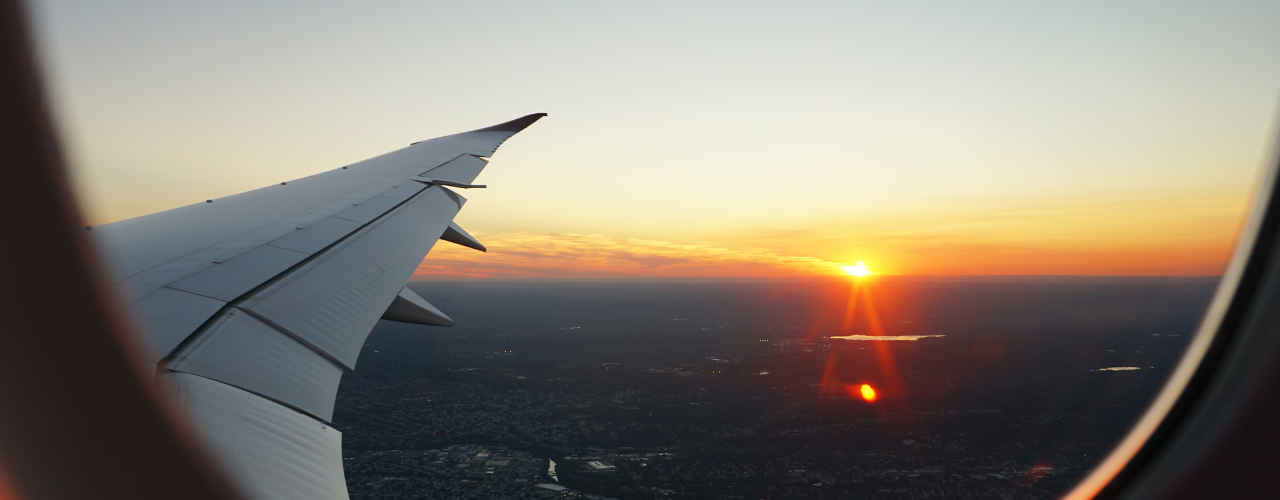The future of aviation has always seemed like a distant one. But the future we look to today – of flying EVs and net-zero flights – might be out of reach for decades.
Innovation has undeniably been slow. There hasn’t been a quantum leap in ages – only incremental nudges towards better ops, safety and efficiency.
In a sector characterised by intense competition and paper-thin margins, funnelling cash into R&D for technologies that might be a dead end isn’t the smart choice right now.
So what is the smart choice? The answer so far has been ancillaries.
But in the face of mounting environmental awareness and evolving customer expectations, the industry needs to start looking beyond its siloed offering if it wants to stay relevant and keep the cash flowing.
Ancillaries – how did we get here?
The concept of ancillary sales in aviation didn’t really exist until low-cost carriers (LCCs) emerged. Up until this point, all-in bundled fares were the norm. But as LCCs started to displace flagship carriers and take more market share, the adoption of product unbundling and ancillary sales became increasingly common.
In 2022, ancillary sales totalled US$102 billion – 15% of total airline revenue. In the US domestic market, seat bookings alone account for more than US$4 billion.
That’ll only continue if passengers keep choosing air travel as their main mode of transport. But today, consumers are hyper-aware of their impact on the climate.
Travellers and governments are pressing aviation to do more to fight global warming.
Ancillaries aren’t going to remain sustainable, unless aviation retailing starts to think beyond the flight.
Moving beyond the airline ecosystem
Carbon offsetting isn’t cutting it anymore. People are demanding more action on the environment from aviation.
France announced higher taxes on aviation which will directly fund railway investment, closing the price gap between air and rail. This comes off the back of a ban on short-haul domestic flights.
More could be coming. But the industry can survive this, with multimodal travel.
It offers a life raft, until we get net-zero flights and EVs. It’s an opportunity for airlines to meaningfully reduce their carbon footprint, while shoring up a new kind of ancillary revenue.
Far from competing with airlines, multimodal travel opens new opportunities for ancillary sales, beyond the aircraft and beyond the airport.
Air France, Iberia and Lufthansa have already launched intermodal tickets.
Passengers are increasingly booking direct, too – and this keeps customers in the airline’s ecosystem, where these new ancillaries can be offered meaningfully, in context.
Retailing has always offered relevant products like airport transfers, car hire and hotel for decades. What’s new is the inclusion of modes that would traditionally be seen as eating the aviation industry’s lunch.
The potential opportunity here is staggeringly vast, and this doesn't even account for cross-border rail travel.
But ultimately, multimodality is better for the customer.
Keeping up with customer expectations
Customers want to feel represented by the brands they buy from, including travel brands.
The heightened awareness of environmental impact is being pushed into view by Gen Z, whose purchasing power has come of age, and whose role in businesses is now significant.
Allowing them the flexibility to book air, rail and road transport in a single booking wins you the direct booking and the ancillary revenue, instead of forcing customers to book piecemeal trips – or into the arms of your competitors.
For corporates who’ve got all eyes on their ESG strategies, this kind of tangible reduction in emissions is extremely attractive. This isn’t just a “nice to have” anymore, thanks to the European Union’s Corporate Sustainability Reporting Directive (CSRD).
Multimodal travel will have a profound effect on the outcomes of sustainability reports, and adoption will likely be widespread. But as timely and on-point as it may be culturally, climate action is only a fringe benefit.
Because when the chips are down, most customers are all about convenience.
Visit most airline.com sites, and you'll only be able to search for airports they fly to – not destinations. Passengers don’t travel to airports; they travel to resorts, hotels and experiences.
Aviation’s missing link is completing the whole journey in a single booking.
Imagine being able to search for a destination, and getting the nearest airport, plus a rail or public transport connection to take you the rest of the way – without having to book anything separately.
Travellers get a better experience. The airline increases ancillary revenue, with higher-quality data on what their customers actually want: data that can be measured against events that impact mass travel – like Taylor Swift’s tour, World Cup matches and festivals.
Multimodality is an affirmation of customer values, in an experience that reflects them as an individual. Facilitating their freedom is precisely what airlines should be doing.
So, how do we get there? Well, the tech to do this already exists.
Because we built it.
The road to multimodality
There are several routes into a multimodal future – all riddled with problems.
The travel ecosystem is a fractured, fragmented collection of disparate, often old systems: GDS, EDI/EDIFACT et al.
These can only support a limited number of verticals, like air and hotel – not rail, ferry, ride hailing, or any other modes. Attaching these modes to bookings takes airlines into a further fragmented realm of micro vendors, with literally thousands of APIs and platforms dedicated to single functions.
Airlines could consume multimodal content via all these distinct APIs – but imagine how resource-intensive it would be to integrate each mode, each supplier, each platform.
Even existing aggregators only offer a limited breadth of products, requiring multiple integrations.
Snowfall has created the answer to this, with Junction – our flagship travel technology platform.
Discover the tech behind multimodal travel at World Aviation Festival
Come and see the future of aviation for yourself - meet us at stand 1-106 at World Aviation Festival 2023.
Book a meeting with Snowfall at World Aviation Festival 2023
